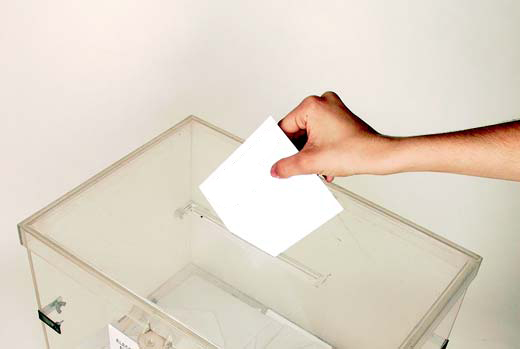In a democracy, basic human issues are decided among all the citizens. In such cases, the citizens are asked to express an opinion for or against a specific matter of major importance: whether to accept the Constitution, whether to join the European Union, etc. This type of direct, general consultation is called a referendum. Here we are talking about direct democracy.
It is obvious that it would be impossible to be constantly asking all citizens for their views about everything. That is why in most cases citizens do not participate directly, and other kinds of channels are used: they choose somerepresentatives and they leave the power to decide in their hands for a specific period of time; we call that representative democracy.
Elections are used to choose these representatives of the people. In a secret ballot each citizen chooses the representatives he/she thinks are the best to form the government. That is how our representatives are chosen for the municipal council, autonomous community, State or European Parliament. After the elections, those who win a majority will form a government. In short, democracy can be described as the power of the majority while respecting the rights of minorities at all times.
But to make sure all citizens participate, it is very important for everyone to receive broad, detailed information. Therefore, if democracy is to work properly, freedom of expression and information, which is an intrinsic right of individuals, is essential. That is why the media -newspapers, magazines, TV, etc.- are so important in democracies. It would not be a real democracy if the rights of some members of society were restricted in these areas.
While we are on the subject, suffrage usually means the right to vote which is universal, free and in secret. In other words, all adult citizens of legal age have the right to vote freely. In most countries today only citizens who are 18 and over are of legal age. It should also be remembered that women did not win the right to vote until the 20thcentury. Before that, they were not allowed to elect representatives or stand as candidates.
In the elections in Europe and in many other states, the D’Hondt Law is used to distribute the elected representatives on the basis of the proportional representation of the political parties. In this system, parties obtain the seats of the parliament in proportion to the number of votes they get.
In general, it can be said that the D’Hondt Law works slightly in favour of the large parties and to the detriment of small, isolated parties.



